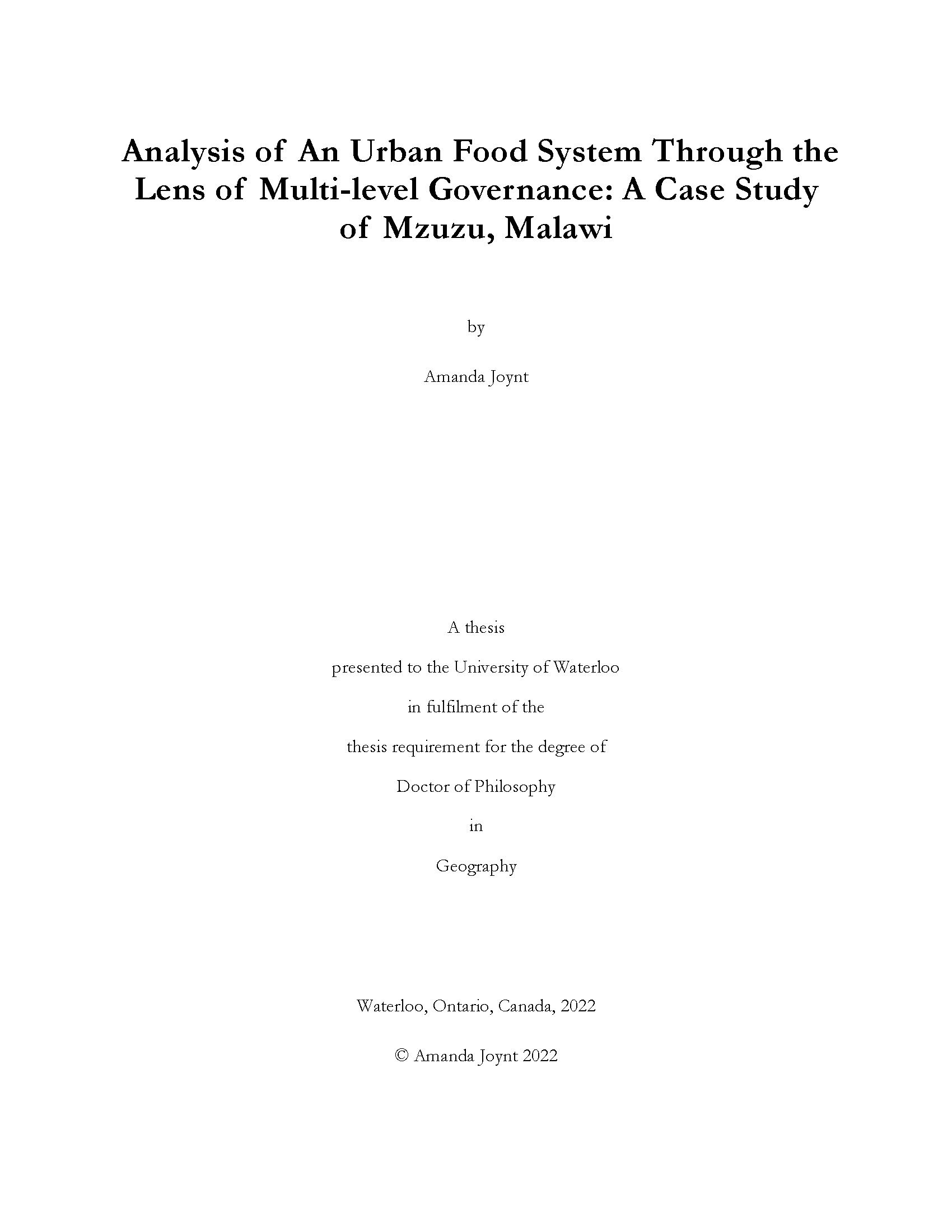– PhD Thesis –
Urban food systems exist in a paradox – there are large amounts of available food, as well as hungry people. Urban governments are often held responsible for food insecurity in their jurisdiction, however the governance of urban food systems is influenced by social, economic, and political forces at various levels of governance. This dissertation investigates the nature of these influences through a qualitative analysis of the perspectives of actors at multiple levels and types of governance. This work applies the Governance Analytical Framework to a case study of Mzuzu, Malawi’s food system and asks why this paradox of availability and hunger exists. Multiple forces outside of the bounds of the city government are found to influence food system processes in Mzuzu. The city’s food system outcomes are perceived to be influenced by an asymmetrical power balance between the national government and other types of governance, through the diverse pathways to access food, economic inequality, high urbanization rates, and the physical infrastructure of markets, transportation, and energy systems. This perspective-driven approach also elucidates the differing beliefs about the reasons behind Mzuzu’s food system outcomes – notably cultural norms, the influence of liberal market and aid discourse, and government capacity and corruption, including the agency with which governing actors choose to create, implement, and enforce rules. The results of this empirical study of complex food system governance provides practitioners and policy makers with practical starting points to engage in the policy discussions and interactions required to govern Mzuzu’s food system. Though this is a case study, the methodology can be applied to other urban sites, showing how governance can be a frame for comparative, qualitative assessment.

